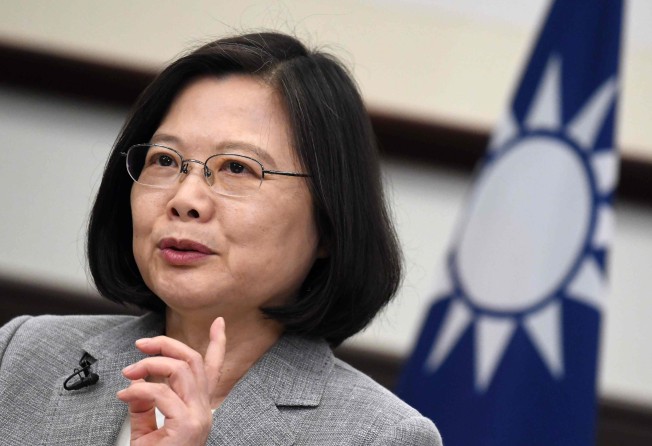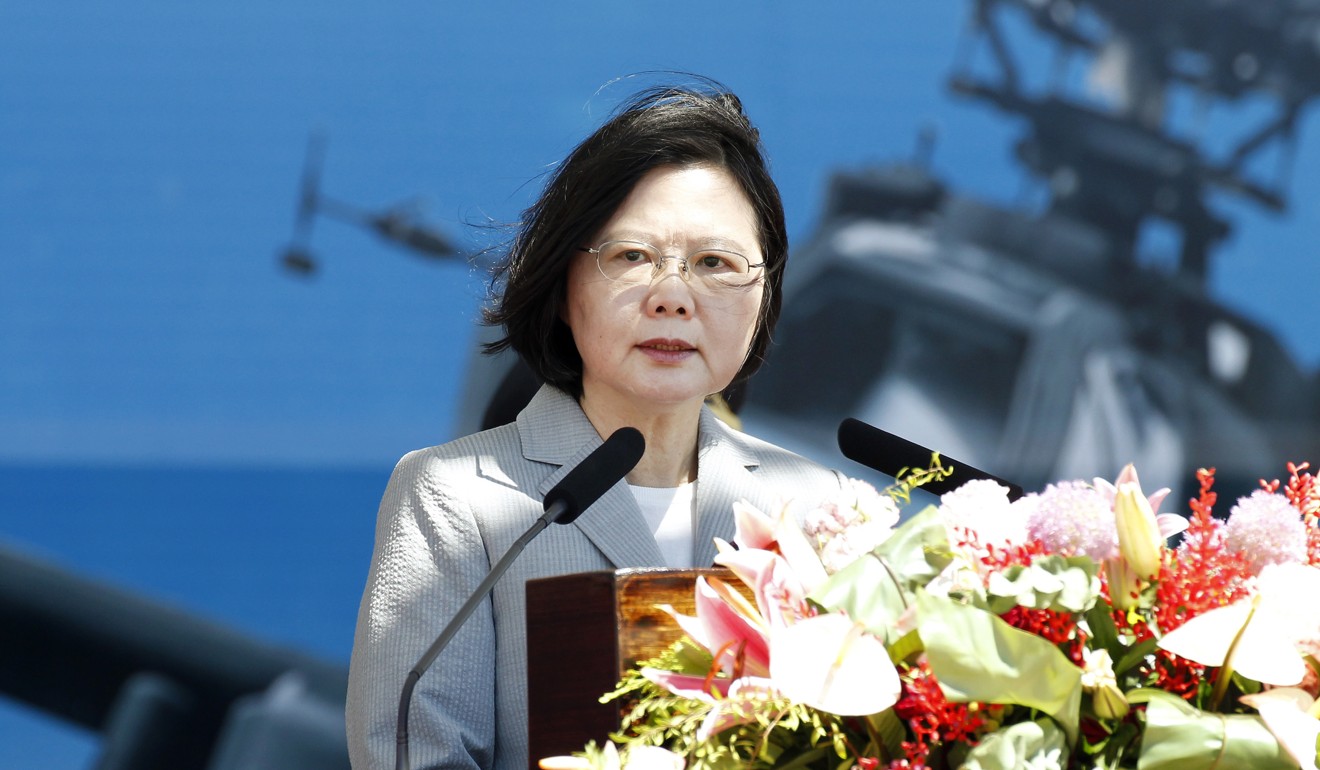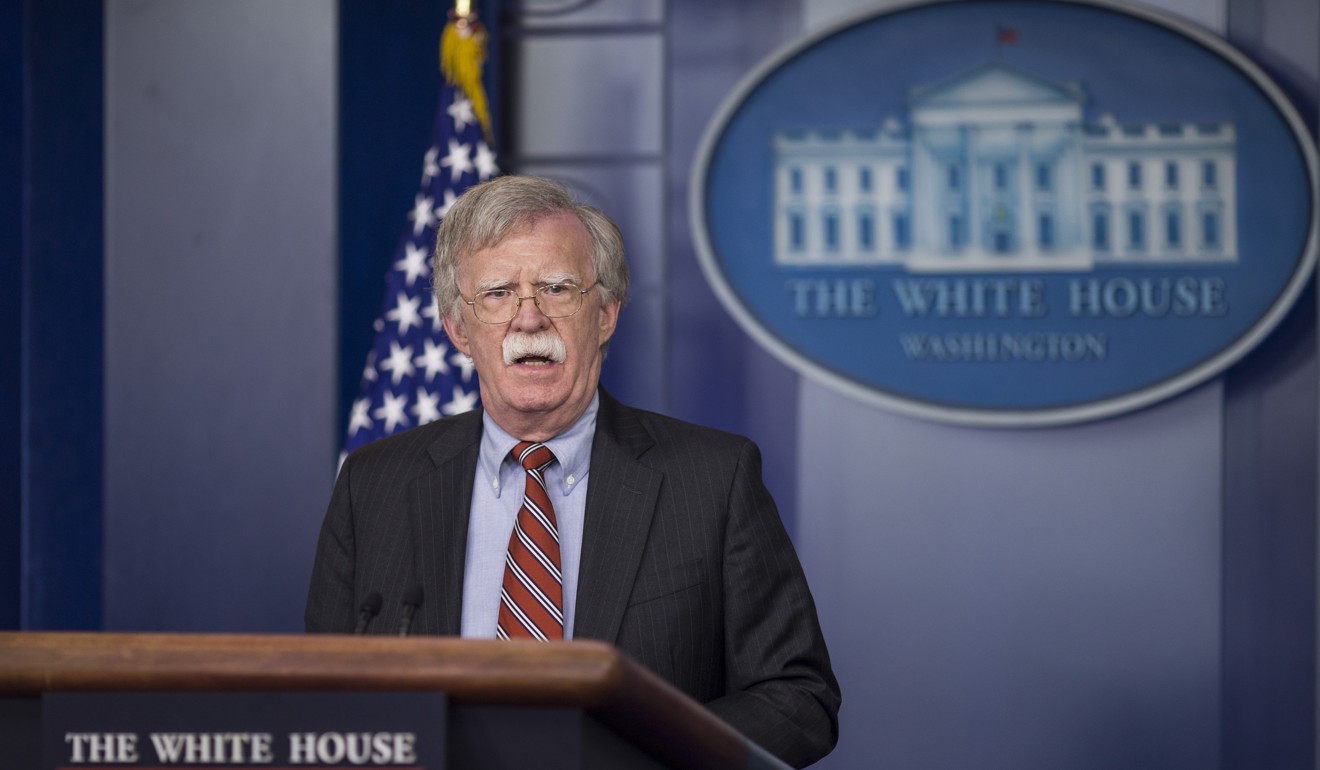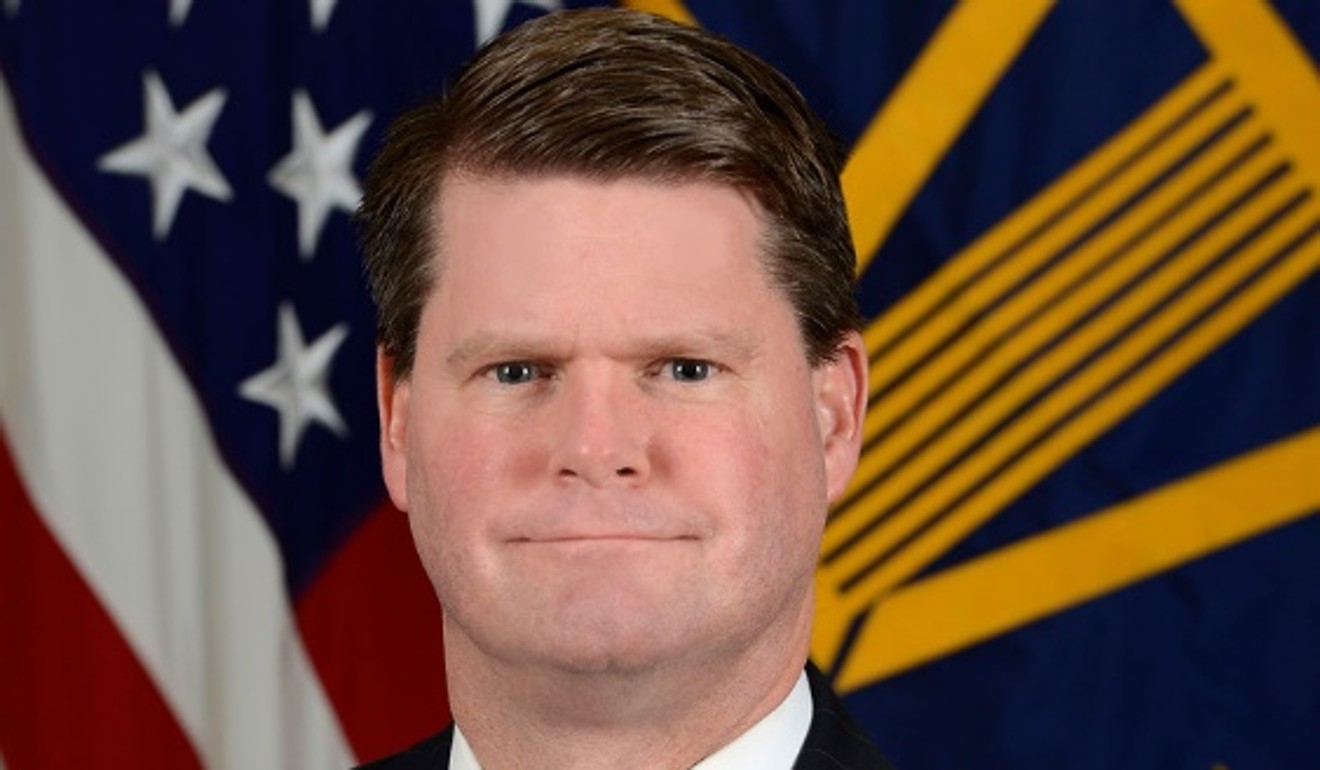How Donald Trump’s Taiwan hands approach cross-strait tensions as Tsai Ing-wen lands in America
Top American officials on Asia policy have voiced pro-Taiwan sentiments, but leader’s brief visit to US will follow previous protocol

As Taiwanese President Tsai Ing-wen prepares to pass through two American cities on her way to and from Latin America beginning on Sunday, a look at US President Donald Trump’s new line-up of Taiwan hands shows two top officials who have expressed willingness to revisit US policy toward the self-ruled Chinese island.
In the pro-Taiwan camp are John Bolton, Trump’s national security adviser, and Randall Schriver, the assistant secretary of defence for Asian and Pacific security affairs.
Promoting the status quo has been James Heller, director of the Office of Taiwan Coordination at the State Department, the US government agency that usually handles Tsai’s transits.
Tsai will pass through Los Angeles on her way to Paraguay in South America and through Houston on her return journey from Belize in Central America.
The arrangements indicate that the Trump administration has adhered to the established way of conducting such transits – Taiwan’s president, vice-president, premier and vice-premier do not come to Washington – despite speculation that there might have been efforts to allow a US capital transit for Tsai.
Beijing has long objected to the US practice of allowing Taiwan’s leaders to use American territory for travel, a result of the one-China policy under which Taiwan is viewed as a wayward province that could be brought under the mainland’s rule by force if necessary.
During the confirmation process for their current posts, Bolton and Schriver pushed for a more rapid revisiting of Taiwan policy, while Heller has emphasised “continuity over change”, a source told the South China Morning Post.
But Bolton and Schriver have refrained from making any substantial moves since taking their posts at the White House and Pentagon, indicating that the Taiwan issue has not yet become a Trump priority, the source added.
“I imagine Trump remains focused on China for now and is not ready to consider Taiwan on its own terms,” the source said.

John Bolton
Since John Bolton began his tenure as Trump’s national security adviser on April 9, he has not made any public comment on the White House’s Taiwan policy, indicating that the issue is not among Trump’s priorities.
“I suspect John Bolton has goals commensurate with those he espoused on Taiwan before going to the NSC,” said a person with close ties to both US and Taiwanese authorities, speaking on the condition of anonymity.
“But he works for the president and will have to follow his priorities, which do not now appear to include Taiwan,” the source said. “That may change later.”

Days before Trump was sworn in as president, in January 2017, Bolton wrote an opinion piece in The Wall Street Journal urging the US to “revisit” its one-China policy, a provocative proposal seen by Beijing as a threat to the foundation of Sino-US relations.
In the column, he also suggested that the Shanghai Communiqué of 1972 – in which the US acknowledged that “there is but one China and that Taiwan is a part of China” – be renegotiated.
“Let us see how an increasingly belligerent China responds,” Bolton wrote.
Bonnie Glaser, a senior adviser for Asia and director of the China Power Project at the Center for Strategic and International Studies, said she doubted that such personal opinions could be translated into government policy.
“Individual preferences are only one variable that affect US policy,” Glaser said. “US policy is formulated within the context of a changing security environment, in which Chinese political, economic and military pressure on Taiwan are growing.”
Another Washington-based observer of US-China relations characterised Bolton as the “best friend of the independence movement in Taiwan”.
The source said the US State Department and the Pentagon may play “a role of restraining” in keeping the Taiwan issue from becoming a flash point or risking conflict between the US and China, but warned that “John Bolton’s approach is to continuously intervene”.
In June, the Trump administration did not send Bolton or a cabinet-level official to Taiwan when the American Institute in Taiwan (AIT) – the unofficial US embassy in Taipei – opened its new offices.
However, there is speculation that Bolton could visit Taipei in early September as the AIT’s new building officially enters into full service, though the observer said he doubted those rumours.
Randall Schriver
Since his appointment to the Pentagon post in January, Randall Schriver has been a more vocal Taiwan advocate than Bolton within the Trump administration. Schriver has more than two decades of experience in Taiwan affairs and deep connections to the island’s current ruling Democratic Progressive Party.
During a Heritage Foundation event in Washington in July, Schriver defended two US Navy warships’ recent passage through the Taiwan Strait as a response to the Chinese Air Force’s training flights around the island in April and May.
When asked whether the US and China’s military activities were risking a conflict across the strait, Schriver denied that it was the United States’ intention “in any way to add to tension or undertake activities that could raise the risk of accident or conflict”. He blamed China for being “the party that has been most aggressive”.

Schriver also said Taiwan should “pursue dialogue without precondition” with mainland China. In late April, Tsai expressed her willingness to meet Chinese President Xi Jinping “for peace and stability”.
However, Beijing has set a precondition for the resumption of regular cross-strait communications, insisting that Taipei acknowledge the “1992 consensus” that outlines the one-China principle.
Tsai has avoided mentioning the consensus since taking office in May 2016.
“We think it will ultimately position Taiwan better for not only maintaining the status quo and its security, but also the future of cross-strait dialogue if Beijing is willing to sit down and have those discussions,” Schriver said.
During testimony at his nomination hearing in November, Schriver said he believed that “China is developing the capacity to coerce Taiwan and if directed, to compel unification by force”, and that “there are no indications that China is preparing to renounce the use of force, now or in the future”.
Schriver said the US should sell arms to Taiwan in a more “predictable” and “timely” manner. He also said he supported “both US Navy ship visits to Taiwan as well as Taiwan navy ship visits to the United States”.
“Such port calls would be entirely consistent with our One China policy as we define it,” he wrote in response to US lawmakers’ questions during his nomination process, adding that he would “support our political goals of supporting Taiwan and deterring China”.
Before his Pentagon posting, Schriver worked at the State Department from 2001-2005, first as chief of staff and later as deputy assistant secretary for East Asian and Pacific affairs for his mentor Richard Armitage, a former deputy secretary of state under President George W. Bush who has also been a long-time Taiwan advocate.
Armitage co-authored a paper published by the Project 2049 think tank in March, saying that Trump and Tsai “should seek the opportunity to meet each other in person” and that “cabinet-level officials should regularly visit their counterparts in Taiwan.”
In 2005, Schriver was awarded Taiwan’s highest non-military honour by then-Taiwanese leader Chen Shui-bian for what was described as his “remarkable contributions” to Taipei-Washington relations.
James Heller
The assistant secretary of state for East Asian and Pacific affairs is the top US official responsible for Taiwan policy. Susan Thornton had held that post until her retirement last week, and her replacement has yet to be named.
Long-time Taiwan hand James Heller currently oversees policy as director of the State Department’s Office of Taiwan Coordination. One of the sources said that he “emphasises continuity over change” regarding US policy.
This continuity originates from the United States’ shift of diplomatic recognition from Taipei to Beijing in 1979, when Washington officially acknowledged that there is one China and that Taiwan is part of it.
The US “does not support Taiwan independence” but maintains “strong, unofficial relations” with Taipei, which includes assisting the island’s defence capability, the State Department says on its website. US policy also insists on the peaceful resolution of cross-strait differences and opposes unilateral changes to the status quo by either side.
The US also supports Taiwan’s membership of international organisations that do not require statehood as a condition of membership.
“We will review ways to expand Taiwan’s international space,” Heller said in November 2016.